by urban-acupuncture | Jun 13, 2021 | Acupuncture
Heartburn And Acid Reflux (GERD) Relief
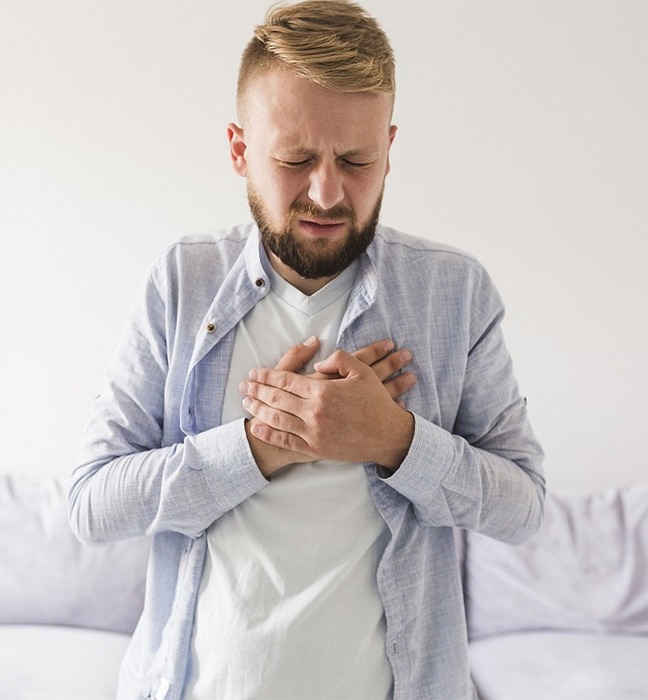 Heartburn, as opposed to heart attack pain, is mild to severe pain that you feel in your chest due to problems in your digestive system. With heartburn, the acid in your esophagus lining can cause a burning sensation in your chest. This pain might move up to your throat and neck regions, causing severe discomfort that escalates when you are bending over or lying down.
Heartburn, as opposed to heart attack pain, is mild to severe pain that you feel in your chest due to problems in your digestive system. With heartburn, the acid in your esophagus lining can cause a burning sensation in your chest. This pain might move up to your throat and neck regions, causing severe discomfort that escalates when you are bending over or lying down.
Mild heartburn can be treated with the help of antacid medication. You can also lower the chances of getting heartburn by managing your weight, avoiding smoking, and refraining from eating spicy food. In some instances, heartburn may be a symptom of a more severe illness like acid reflux or gastroesophageal reflux disease (GERD).
Acid reflux occurs when stomach acid flows into the food pipe and causes irritation in your lining. In addition to heartburn, throat pain, coughing, and bitter taste in the mouth are some other symptoms of acid reflux. When acid reflux happens frequently and leads to inflammation of the esophagus, this is an indication of GERD. As a chronic disease, GERD can cause asthma, chest pain, persistent coughing and other symptoms.
Heartburn and acid reflux treatment: Acupuncture
Symptoms of acid reflux and GERD can negatively impact your daily life. With the help of treatment, you can manage these symptoms and reduce the chances of having chest pain. Acupuncture is a type of treatment that improves regular body functions and natural self-healing by stimulating acupuncture points in the body. Most commonly, thin needles are inserted into your body, and heat, pressure or other forms of stimulation may be applied to enhance the impact.
In an acupuncture treatment, an acupuncturist will inquire about your health history and perform certain physical examinations depending on your body needs. Following assessment, an acupuncturist will recommend the right treatment for you. Research indicates acupuncture’s beneficial effects on the various body systems that reduce pain, enhances sleep, and improves digestive functions.
Urban Acupuncture Center
Do you live in Columbus, Clintonville or Westerville, Ohio? Consider relieving your heartburn and acid reflux symptoms by seeking acupuncture treatment at Urban Acupuncture Center.
With more than ten years of experience in providing high-quality and affordable acupuncture treatment for all, our center specializes in making acupuncture therapy available for all.
Depending on your specific needs, you can avail both community acupuncture and private acupuncture from our facilities. Community treatment sessions are offered in a relaxed and friendly setting and take roughly about an hour to accomplish. Not only can they help treat acid reflux, but they are also affordable and available seven days a week.
For a more personalized therapy session or a more complex medical issue, private acupuncture treatment is also available. These sessions are curated based on your medical history and may incorporate TDP lamp therapy, electroacupuncture or other techniques as needed. You can also avail a combination of both community and private acupuncture treatment sessions.
Visit our website to know more about the services you can avail.
Contact Urban Acupuncture Center in Columbus, OH For More Information
For more information about how acupuncture, massage therapy and other alternative healing treatments can help you, please contact the Urban Acupuncture Center Board Certified Licensed Acupuncturist’s team at Indianola Ave, Clintonville (614) 725-2488 | Main St, Westerville (614) 426-4406 or click here. Taking new patients in and around greater Columbus, Ohio.
by urban-acupuncture | May 10, 2021 | Acupuncture
Sinus Problem Treatments
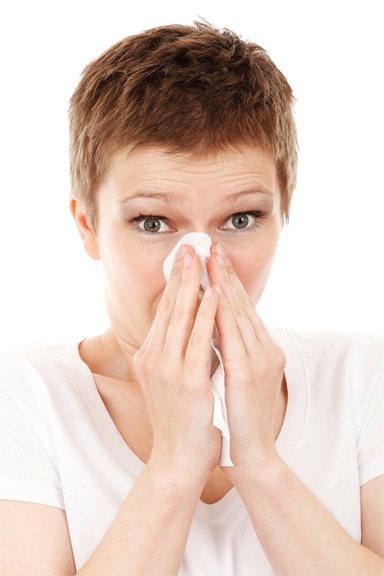 Sinus problems, whether they stem from sinusitis, hay, or even a bad nasal blockage, can leave people feeling unwell. In the human body, the sinuses are found in four areas of the head that are connected to each other.
Sinus problems, whether they stem from sinusitis, hay, or even a bad nasal blockage, can leave people feeling unwell. In the human body, the sinuses are found in four areas of the head that are connected to each other.
When a sinus problem develops, one of the most immediate effects people report is a headache. Some people face difficulty breathing, and others report lethargy and a general feeling of being unwell. While the symptoms and causative factors that lead to sinus problems differ from person to person, the end result is the same. The person suffers. Chronic sinus problems can be especially troublesome who experience it.
But can acupuncture help solve this? Let’s look at what a sinus problem indicates first.
What Causes Sinus Problems?
Your sinuses constitute four parts of your face that are interconnected. These are:
- The area of the skull that’s right behind the forehead.
- The eyes.
- The nose.
- The cheeks.
These portions of the face produce mucus that is harmlessly released by the body through the nose. You’ll hardly feel this happen, and its purpose is to remove dirt, bacteria, as well as other foreign irritants from the body.
When your sinuses are working fine, this isn’t a problem. But if your sinuses get clogged up, then the debris that the nose would’ve normally ejected can’t be released. Your sinuses can get blocked for various reasons. Some of these include:
- Sinusitis
- A bad cold
- Allergies
- The development of polyps in the nasal cavity
When the nose can’t effectively discharge the pollutants, this leads to a build-up of pressure. It’s this sensation that causes physical discomfort in people and leads them to look for solutions.
There are some common symptoms associated with problems of the sinus. These include but aren’t limited to:
- Headaches
- Difficulty breathing
- Pain in the sinus
- Fever
- Yellow or green mucus coming out from the nose
- Congestion
How Can Acupuncture Help Heal Sinus Problems?
Clogged sinuses represent an imbalance of the specific areas of the body. As a way to restore the balance, acupuncturists make use of fine needles that address various pressure points. When the needle is removed, the blockage is released and the energy in the body can flow smoothly once again.
People have reported that acupuncture provides immediate relief from sinus-related problems. The most common report is that headaches subside surprisingly fast following an acupuncture session to heal those targeted areas.
Are You Suffering From Sinus Related Issues?
Before your acupuncturist begins their session with you, they’ll ask for details on the history of your sinus condition. After assessing your situation and determining which pressure points need to be addressed to clear your nasal blockages, your acupuncturist will help you heal your sinus problems.
If you live in Columbus, Clintonville, or Westerville in Ohio, why not consider acupuncture as a way to relieve you from your sinus problems? Simply visit or call us at the Urban Acupuncture Centre to book your therapy session, and use acupuncture to heal your sinus and find relief from pain.
Contact Urban Acupuncture Center in Columbus, OH For More Information
For more information about how acupuncture, massage therapy and other alternative healing treatments can help you, please contact the Urban Acupuncture Center Board Certified Licensed Acupuncturist’s team at Indianola Ave, Clintonville (614) 725-2488 | Main St, Westerville (614) 426-4406 or click here. Taking new patients in and around greater Columbus, Ohio.
by urban-acupuncture | Apr 10, 2021 | Acupuncture
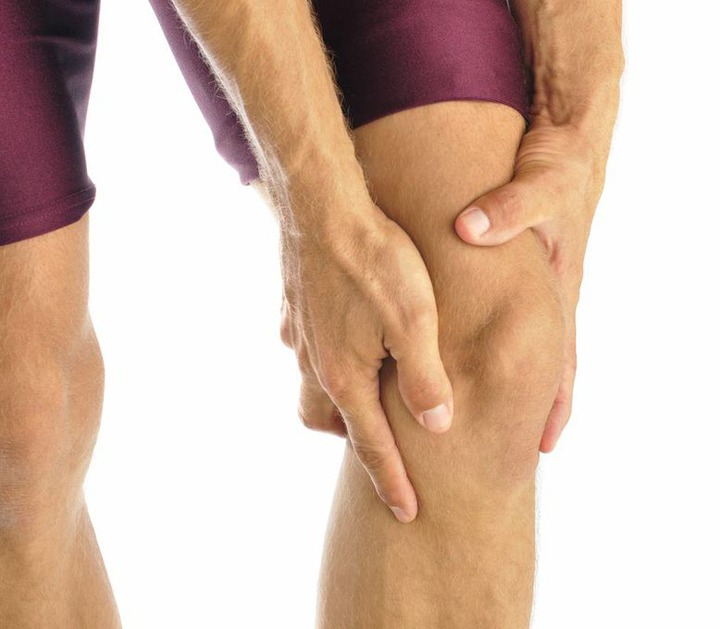 Millions of people around the world suffer from arthritis. This is a common health issue that causes inflammation and pain in the joints. Both osteoarthritis (OA) and rheumatoid arthritis (RA) can affect a person’s quality of life. Both types of arthritis present symptoms that range from mild to debilitating pain.
Millions of people around the world suffer from arthritis. This is a common health issue that causes inflammation and pain in the joints. Both osteoarthritis (OA) and rheumatoid arthritis (RA) can affect a person’s quality of life. Both types of arthritis present symptoms that range from mild to debilitating pain.
Acupuncture: An ancient medicine for arthritis relief
Acupuncture has its roots in traditional Chinese medicine (TCM). This is an ancient treatment procedure involving the insertion of fine stainless steel needles into precise locations in the body.
Prior to treatment, the patient is thoroughly assessed by a trained practitioner. Next, the acupuncturist starts the treatment by inserting needles at specific points on the patient’s body. The location will depend on the specific health concern. For example, for arthritis-related knee pain, the needles are inserted around the knees.
TCM practitioners use acupuncture to treat numerous complaints such as:
- lower back pain
- headache
- neck pain
- dental pain
- post-surgical pain
- knee pain
How acupuncture treats arthritic pain
In TCM theory, “qi” is a vital life energy. It flows across various body channels or meridians. When a blockage occurs in the passage of qi, it may result in pain and illness. During the acupuncture session, the practitioner can stimulate nearly 2,000 points to restore qi flow and alleviate symptoms.
Several studies have shown that acupuncture is an effective treatment option for relieving arthritis-related knee pain. How? Acupuncture produces an anti-inflammatory response in the body. It suppresses the inflammatory response, improving blood circulation and relaxing muscle tone.
In TCM, the acupuncturist creates an individualized treatment plan for every patient. Although how acupuncture relieves arthritic pain is still unclear, many individuals report feeling better after the treatment.
Benefits of acupuncture
Patients who undergo acupuncture treatment for arthritis often report a significant improvement.
The Arthritis Foundation lists the following benefits of acupuncture:
- improved sleep due to melatonin release
- stress relief after stimulation of oxytocin and endorphins
- pain relief after nerve fibers are stimulated to block pain signals.
A study published in 2019 in the Journal of Alternative and Complimentary Medicine found that people with RA felt significantly better after acupuncture treatment. In the study, the researchers created three groups:
- Group 1- received acupuncture with the TCM method
- Group 2- received acupuncture at random locations on the body
- Group 3- no treatment
Participants in Group1 reported less pain, better arm and hand strength, and better health and quality of life compared to the other groups.
Both RA and OA present a unique set of symptoms for each person. Therefore, it’s best to seek an individualized treatment plan that combines different therapy options. Many people seek acupuncture as a trusted method for experiencing knee pain relief from arthritis. Although scientists are still unable to explain how acupuncture works in the body, people living with mild to severe arthritis pain can still benefit from this treatment option.
Contact Us
For more information about how acupuncture and treatment options can help you feel better, please get in touch with the board-certified team at Urban Acupuncture Center in Clintonville, Ohio. This clinic also serves customers from Columbus and Westerville.
Contact Urban Acupuncture Center in Columbus, OH For More Information
For more information about how acupuncture, massage therapy and other alternative healing treatments can help you, please contact the Urban Acupuncture Center Board Certified Licensed Acupuncturist’s team at Indianola Ave, Clintonville (614) 725-2488 | Main St, Westerville (614) 426-4406 or click here. Taking new patients in and around greater Columbus, Ohio.
by urban-acupuncture | Apr 1, 2021 | Acupuncture
Can Acupuncture Help You Sleep?
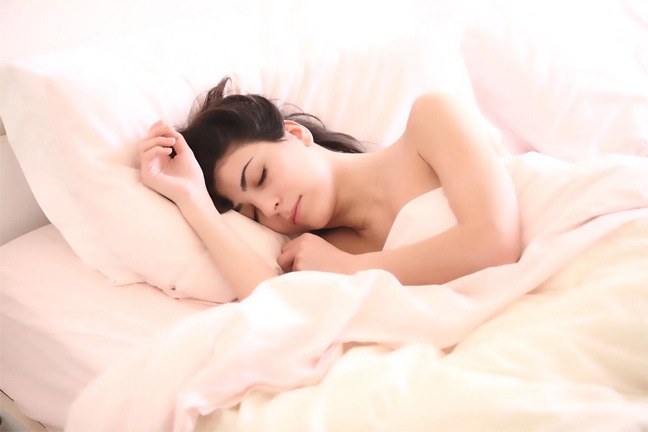 Who hasn’t had that awful experience of crawling out of bed and facing a busy day after tossing and turning all night long?
Who hasn’t had that awful experience of crawling out of bed and facing a busy day after tossing and turning all night long?
Almost everyone, at some point, will have to deal with interrupted sleep. For some people, it might be just one night or a couple of isolated occurrences. For others, disordered sleep patterns—insomnia—is a daily problem that can have a devastating impact on their well-being.
Most doctors recommend that adults get at least eight hours of sleep every night. Unfortunately, studies show that most adults in the United States today get by on far less.
But as we all know (even if we don’t always like to admit it), our doctors are usually right. A good night’s sleep is the foundation of a healthy, active lifestyle. An important first step is making sure that you set enough time aside in your busy schedule to get the full amount of sleep you need. Daily exercise and screen-free time right before bedtime can also help promote healthy sleep habits.
Yet people who struggle to fall asleep, wake frequently, or suffer from other sleep problems may need to take additional steps to get the healthy sleep they need.
Regular Acupuncture treatments can offer hope to individuals suffering from insomnia or other sleep problems. Read more about how acupuncture can help you get a better night’s sleep.
Benefits of Acupuncture for Sleep-Related Problems
Acupuncture is a form of Traditional Chinese Medicine designed to bring your Qi, or vital life energy, into balance, or homeostasis. Homeostasis is a state of balance where the body can self-relate its internal functions to maintain good health and well-being.
Unfortunately, many aspects of living in today’s busy world can create an imbalance or cause your Qi to become blocked. When this happens, the body can no longer self-regulate and self-heal.
Stimulating points along the meridians—channels through which your Qi flows—can address sleep issues by bringing your body into balance. Acupuncture has been shown to help promote better sleep through stress-reduction and relaxation. But it can also address underlying concerns undermining good sleep patterns.
Why You Should Try Acupuncture for Your Sleep-Related Issues
Just one night of interrupted sleep might not be so bad. If sleep normally isn’t a problem, you can probably make it up with a short nap followed by a good night’s sleep.
But letting sleep issues go unresolved over the long term can be extremely detrimental to your health, your well-being, and even your safety. Multiple studies have indicated that lack of sleep can lead to:
- A higher risk of accidents due to slowed reaction time
- Lower levels of performance at work or school
- Increased risk of mental health disorders such as anxiety, depression, and addiction
- Increased risk of long-term health concerns such as high blood pressure, heart disease, and diabetes
- Visible signs of rapid aging
Acupuncture v. Sleep Aids
The long-term health risks associated with insomnia and sleep problems probably don’t come as a surprise to many people. Yet in the daily fight to get a good night’s sleep, many people quickly turn to over-the-counter sleep aids.
Unfortunately, sleep aids are not an ideal solution, especially when coping with long-term sleep problems.
Most sleep aids, whether OTC or prescription, can be addictive, both physically and psychologically. Some come with serious potential side effects that can create their own health risks. And they never address the underlying issues that may be causing the insomnia in the first place.
Acupuncture, on the other hand, has shown to be a low-risk method of addressing sleep concerns. It is both safe and effective for many individuals.
Acupuncture Promotes Better Sleep by Addressing Underlying Conditions
And not only is acupuncture generally safer than sleep aids in both the short- and long-term. It can also help address some underlying medical conditions that may be at the root of your sleep issues.
Acupuncture can, for example, help relieve pain and discomfort. In some cases, acupuncture may be able to help address specific issues such as sleep apnea. And perhaps most importantly, it can also help reduce stress and anxiety, which are one of the most common reasons for disordered sleep.
So if you are having trouble sleeping, why not give acupuncture a try? Especially when combined with a healthy lifestyle and good sleep hygiene, acupuncture can help you say goodbye to those sleepless nights and tired days.
Contact Urban Acupuncture Center in Columbus, OH For More Information
For more information about how acupuncture, massage therapy and other alternative healing treatments can help you, please contact the Urban Acupuncture Center Board Certified Licensed Acupuncturist’s team at Indianola Ave, Clintonville (614) 725-2488 | Main St, Westerville (614) 426-4406 or click here. Taking new patients in and around greater Columbus, Ohio.
by urban-acupuncture | Mar 23, 2021 | Acupuncture, Massage Therapy
Trauma and PTSD Treatment
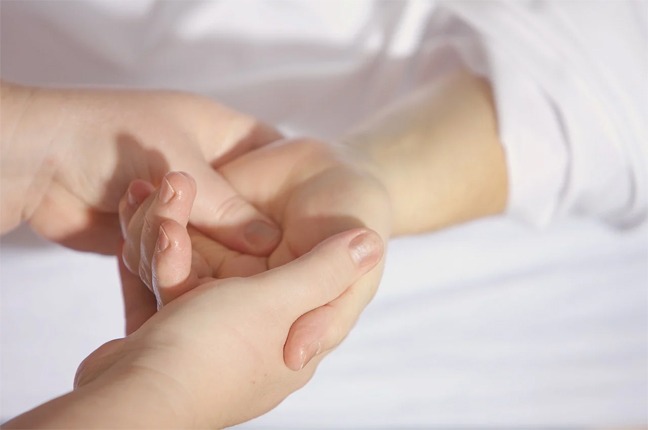 Post-Traumatic Stress Disorder (PTSD) is a complex and serious mental health disorder resulting from a traumatic experience. If left unrecognized and untreated, the symptoms of PTSD can be extremely debilitating. They can interfere with an individual’s ability to work, to maintain relationships, and live a healthy, fulfilling life.
Post-Traumatic Stress Disorder (PTSD) is a complex and serious mental health disorder resulting from a traumatic experience. If left unrecognized and untreated, the symptoms of PTSD can be extremely debilitating. They can interfere with an individual’s ability to work, to maintain relationships, and live a healthy, fulfilling life.
PTSD is rooted in the body’s “fight or flight” instinct. This instinct enables us to react quickly to a traumatic event. The body automatically triggers an appropriate response to danger and then turns that reaction off when the danger is past.
When the trauma is severe or of long duration, however, that “fight or flight” reaction continues even after the danger is past. The inability to shut off the “fight or flight” instinct leads to the symptoms we now associate with PTSD. Just a few of the most common symptoms include:
- Hypersensitivity and hyperawareness
- Anxiety
- Depression
- Irritability and anger
- Insomnia / difficulty sleeping
- Flashbacks and nightmares
- Feelings of isolation and detachment
- Physical pain (not related to a specific physical cause)
Treatment for PTSD usually involves a long-term commitment to psychotherapy, as well as medications if necessary to control some specific symptoms.
Touch therapies such as acupuncture and massage can also play an important role in managing PTSD symptoms and in longer term recovery.
In the short term, massage and acupuncture can help promote relaxation while decreasing feelings of stress, anxiety, and depression. Over the longer term, touch therapy like acupuncture and massage can help individuals with PTSD manage their feelings relating to touch, trust, control, and relationship-building.
Stress-Reducing Benefits of Massage and Acupuncture for PTSD
Both acupuncture and massage are well known for their ability to help minimize stress, anxiety, and depression. This is especially important for individuals with PTSD, for whom these feelings can be overwhelming.
Massage addresses stress that is held in the body as muscle tension. Massage therapy releases this tension by manipulating and kneading those tight muscles. Promoting physical relaxation can reduce body aches and headaches that result from stress and anxiety. And it often leads to an overall positive impact on emotional health and overall well-being.
Acupuncture works differently than massage, but has similar stress-reducing effects that can be highly effective for individuals with PTSD. Acupuncture works by re-balancing the body’s flow of life energy (“qi”). By inserting very thin sterile needles into key points around the body, acupuncture helps stimulate the body’s self-healing mechanisms to reduce feelings of stress, anxiety, and depression.
Touch Therapy Can Help Build Trust for PTSD Patients
Massage and acupuncture can play a critical role in helping to reduce feelings of stress and anxiety, while promoting relaxation, for patients with PTSD.
However, touch therapies like acupuncture and massage can also help individuals with PTSD learn to rebuild trust and control.
In other words, how the therapies are handled can be just as important as the therapy itself.
For many people suffering from PTSD, touch itself can be a triggering event. Over the long term, touch therapy like acupuncture and massage can help these individuals accept physical contact without stimulating the “fight or flight” response.
The key lies in enabling the patient to remain in control throughout each therapy session and to build a relationship of trust with the licensed massage therapist or acupuncturist.
Open communication from the very first consultation through the conclusion of each therapeutic session is absolutely critical to long-term success.
The client must understand what to expect from each session, and trust that he or she can make changes and adaptations throughout each session, even stopping if necessary.
The massage therapist and acupuncturist must listen carefully to the client’s concerns and be willing to adapt their technique in each session to address those concerns.
Like any therapy, massage and acupuncture can help clients with PTSD find relief from their symptoms but success does not happen overnight. It requires a long-term, conservative approach designed to build trust and communication. But in the end, massage and acupuncture can play an integral role in a comprehensive treatment program for PTSD.
Contact Urban Acupuncture Center in Columbus, OH For More Information
For more information about how acupuncture, massage therapy and other alternative healing treatments can help you, please contact the Urban Acupuncture Center Board Certified Licensed Acupuncturist’s team at Indianola Ave, Clintonville (614) 725-2488 | Main St, Westerville (614) 426-4406 or click here. Taking new patients in and around greater Columbus, Ohio.
by urban-acupuncture | Mar 1, 2021 | Acupuncture, Massage Therapy
Managing Chronic Pain
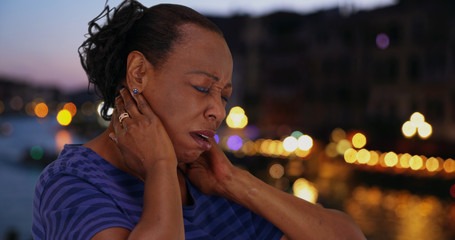 If you are living with chronic pain, you know just how debilitating it can be.
If you are living with chronic pain, you know just how debilitating it can be.
Chronic pain can—and often does—take a serious toll on physical and mental health, lifestyle, and overall wellbeing. Chronic pain can lead to depression, anxiety, and disrupted sleep patterns. It can undermine the ability to work and threaten financial security. And it can interfere with an active social life and even disrupt relationships with family and friends.
Yet chronic pain is often extraordinarily difficult to manage. In fact, chronic pain management continues to be one of the most challenging aspects of medicine today.
Standard treatment for chronic pain today usually revolves around medications. Unfortunately, relying solely on medications can be problematic. Over-the-counter medications such as acetaminophen (Tylenol, etc) and NSAIDs (nonsteroidal anti-inflammatory drugs, ex.: Advil or Motrin) may not be strong enough to be effective in some cases, and can carry risk of potential health concerns with extended use.
And while pharmaceutical opioids such as OxyContin may have seemed like a “miracle drug” for chronic pain in the early 1990s, it is now quite clear that the use of opioids carries significant and serious health risks including the risk of long-term addiction and lethal overdose.
The good news is that alternative pain management therapies are available today.
Acupuncture and massage therapy can both play a highly effective role in pain management, either as stand-alone treatments or, more commonly, as part of a comprehensive pain management program incorporating multiple types of treatment.
Do Acupuncture and Massage Therapy Really Work for Chronic Pain?
An increasing body of scientific literature now indicates that both acupuncture and massage really can help relieve chronic pain for some people.
Both treatment options have been particularly effective in the treatment of lower back pain, headaches and migraines, nerve pain (especially relating to shingles), fibromyalgia, joint pain due to arthritis, and menstrual cramps.
In addition to helping relieve pain and discomfort, both acupuncture and massage have been shown to be highly effective in improving sleep, reducing feelings of depression, anxiety, and stress, and promoting relaxation. These secondary effects may not have an impact on pain reduction in and of themselves. However, they do help promote mental health and well-being, which can play a critical role in improving your overall quality of life.
How to incorporate massage therapy or acupuncture into a pain management program is unique for each patient. For some, regular massage may seem to work “miracles”; for others, acupuncture may provide effective relief. For some, a combination of both may be most effective.
And of course, these treatment options may not work for every patient, or may work only in conjunction with other, more traditional treatments.
Are Acupuncture and Massage Safe for Patients with Chronic Pain?
Massage and acupuncture may not be appropriate for all patients.
For most people, however, both acupuncture and massage may be safely incorporated into a medical and wellness plan. And most medical experts note that unless otherwise prohibited for a specific reason, both massage and acupuncture are worth trying.
Always speak to your physician and pain management specialist about whether massage or acupuncture, or both, might be appropriate for your comprehensive pain management program.
When exploring massage or acupuncture as a pain management option, be sure to choose your practitioner with care. Both your acupuncturist and your massage therapist should be fully licensed and experienced in specific pain management techniques. It’s ok to schedule consultations with multiple therapists to find the one that you feel the most comfortable with.
And it’s important that you are comfortable discussing your health and wellness concerns openly and honestly, before and during each appointment. The more you communicate about your unique situation, goals, and concerns, the most your therapist(s) will be able to effectively tailor your treatments to meet your needs.
Contact Urban Acupuncture Center in Columbus, OH For More Information
For more information about how acupuncture, massage therapy and other alternative healing treatments can help you, please contact the Urban Acupuncture Center Board Certified Licensed Acupuncturist’s team at Indianola Ave, Clintonville (614) 725-2488 or click here. Taking new patients in and around greater Columbus, Ohio.
 Heartburn, as opposed to heart attack pain, is mild to severe pain that you feel in your chest due to problems in your digestive system. With heartburn, the acid in your esophagus lining can cause a burning sensation in your chest. This pain might move up to your throat and neck regions, causing severe discomfort that escalates when you are bending over or lying down.
Heartburn, as opposed to heart attack pain, is mild to severe pain that you feel in your chest due to problems in your digestive system. With heartburn, the acid in your esophagus lining can cause a burning sensation in your chest. This pain might move up to your throat and neck regions, causing severe discomfort that escalates when you are bending over or lying down.
 Sinus problems, whether they stem from sinusitis, hay, or even a bad nasal blockage, can leave people feeling unwell. In the human body, the sinuses are found in four areas of the head that are connected to each other.
Sinus problems, whether they stem from sinusitis, hay, or even a bad nasal blockage, can leave people feeling unwell. In the human body, the sinuses are found in four areas of the head that are connected to each other. Millions of people around the world suffer from arthritis. This is a common health issue that causes inflammation and pain in the joints. Both osteoarthritis (OA) and rheumatoid arthritis (RA) can affect a person’s quality of life. Both types of arthritis present symptoms that range from mild to debilitating pain.
Millions of people around the world suffer from arthritis. This is a common health issue that causes inflammation and pain in the joints. Both osteoarthritis (OA) and rheumatoid arthritis (RA) can affect a person’s quality of life. Both types of arthritis present symptoms that range from mild to debilitating pain. Who hasn’t had that awful experience of crawling out of bed and facing a busy day after tossing and turning all night long?
Who hasn’t had that awful experience of crawling out of bed and facing a busy day after tossing and turning all night long? Post-Traumatic Stress Disorder (PTSD) is a complex and serious mental health disorder resulting from a traumatic experience. If left unrecognized and untreated, the symptoms of PTSD can be extremely debilitating. They can interfere with an individual’s ability to work, to maintain relationships, and live a healthy, fulfilling life.
Post-Traumatic Stress Disorder (PTSD) is a complex and serious mental health disorder resulting from a traumatic experience. If left unrecognized and untreated, the symptoms of PTSD can be extremely debilitating. They can interfere with an individual’s ability to work, to maintain relationships, and live a healthy, fulfilling life. If you are living with chronic pain, you know just how debilitating it can be.
If you are living with chronic pain, you know just how debilitating it can be.